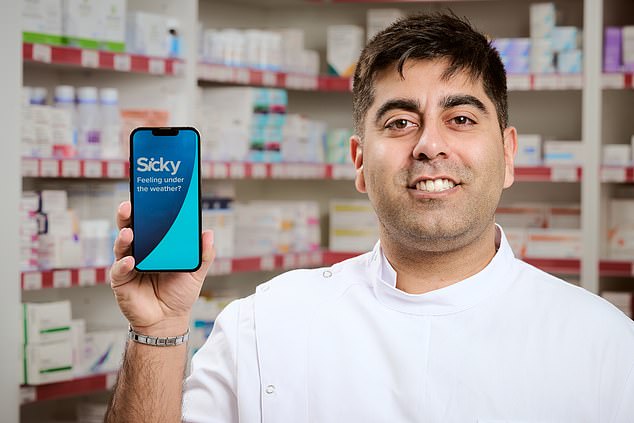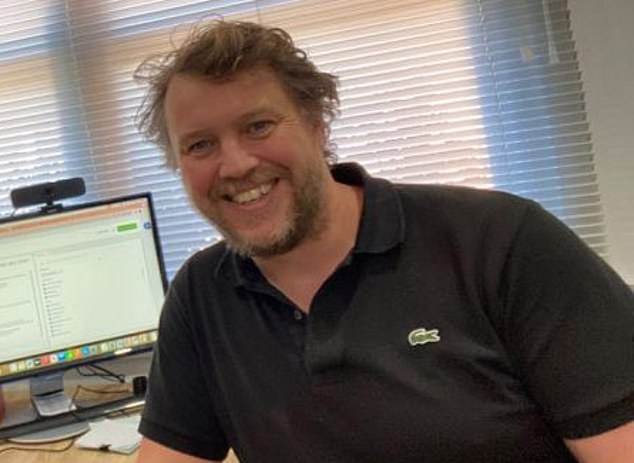A fed up doctor has called out Australian bosses who force employees to get a medical certificate for just one day off.
Dr Max Mollenkopf, owner of a GP practice in Newcastle, said appointments for medical certificates are taking time away from patients who are really sick.
The doctor said he saw two to three patients daily who did not need treatment but needed a medical certificate to take a day off and that it was a waste of time.
“If someone is sick and wants to see me, I want them to be able to come every day of the week,” Dr. Mollenkopf told the AB C.
“I didn’t sign up to do medicine to do human resources policies on behalf of large corporations.”
Max Mollenkopf, owner of a GP practice in Newcastle, says appointments for medical certificates are taking time away from patients who are really sick.

A fed up doctor has criticized Australian bosses for wasting his time by forcing employees to get a medical certificate for a single day off (file image)
When is a medical certificate required?
The Fair Work Commission said it was up to employers to set their own policy and that they “may ask employees to provide evidence of just one day or less of absence from work”.
“An employee who fails to provide evidence to their employer when requested may not be entitled to have their sick or care leave paid,” Fair Work said.
Carys Chan, senior lecturer in organizational behavior and human resources at Griffith University, said requiring a medical certificate was important for many companies.
“If they are going to pay their employees for sick leave, some of the employers will feel entitled to know that you are really sick,” he said.
“For people who work in retail or front-line customer service positions, if they’re not at work, it could be quite disruptive to workflow.”
In the UK there is a “self-certification system” for absences lasting seven days or less.
This means that employees do not require documentation from a doctor or healthcare professional for a period of less than seven days.
Dr Mollenkopf said Australia should consider introducing a similar system to free up time for GPs.
Increase in ‘mental health days’
Avinash Vazirani, founder of sick leave certificate app Sicky, said physical illness is the most common reason for days off, but “mental health days” are gaining popularity.
He said Mondays and Fridays were the most frequently requested sick days, with cold and flu being the most common illnesses, accounting for a third of absences.
Gastro and Covid were the next most common complaints, at 19 percent, followed by migraines at nine percent and stress-related insomnia at seven percent.
However, the rapidly growing reason for staying away from work was taking mental health days, which have increased a staggering 233 percent since Sticky launched in 2020 during the Covid pandemic.

Sicky co-founder Avinash Vazirani (pictured) said vague physical illnesses are the most common reason for days off, but “mental health days” are gaining popularity.

